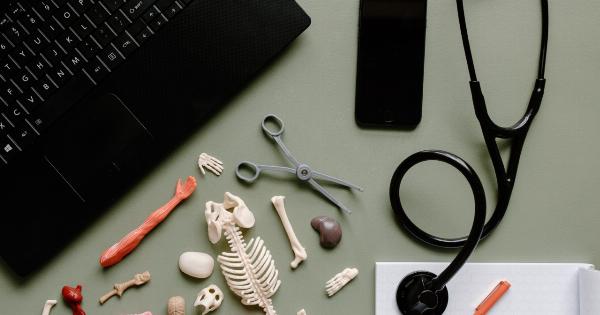Bladder coccyx is a medical condition that occurs when the bladder is pulled down towards the coccyx due to weak pelvic muscles. This condition can cause pain, discomfort, and in severe cases, urinary incontinence.
Surgery is often recommended to correct the problem, and there are several steps patients can take to make their postoperative recovery easier.
1. Follow Your Doctor’s Instructions
After surgery, your doctor will provide you with specific instructions for your recovery. These may include taking medications, limiting physical activity, and avoiding certain foods.
It is crucial to follow these instructions to promote proper healing and prevent complications.
2. Rest and Take it Easy
After surgery, it is essential to rest as much as possible. Avoid strenuous activity, and take it easy for a few weeks. It is common to feel fatigued and sore after surgery, and pushing your body too hard can delay your recovery.
3. Practice Good Hygiene
Good hygiene is crucial for preventing infection after surgery. Be sure to follow proper hygiene practices, such as washing your hands frequently and keeping the surgical site clean and dry.
Avoid swimming or soaking in a tub until your doctor clears you to do so.
4. Eat a Healthy Diet
A healthy diet can help promote healing after surgery. Be sure to eat plenty of fruits, vegetables, whole grains, and lean proteins. Avoid processed foods, sugary drinks, and alcohol, which can interfere with healing and prolong recovery.
5. Stay Hydrated
Drinking plenty of water is essential for promoting healing after surgery. Staying hydrated can also help prevent constipation, a common side effect of surgery and pain medications. Aim to drink at least eight glasses of water a day.
6. Wear Comfortable Clothing
After surgery, it is crucial to wear loose, comfortable clothing that will not put pressure on the surgical site. Avoid tight-fitting clothing and anything that may rub or irritate the area.
7. Take Pain Medication as Prescribed
Your doctor may prescribe pain medication to manage discomfort after surgery. Be sure to take your medication as prescribed and do not exceed the recommended dose. If you experience severe pain or side effects, contact your doctor right away.
8. Seek Support
Recovering from surgery can be challenging, both physically and emotionally. Seek support from friends and family, and consider joining a support group for individuals who have undergone similar procedures.
Talking to others who have gone through the same experience can be helpful and reassuring.
9. Attend Follow-Up Appointments
After surgery, your doctor will schedule follow-up appointments to monitor your progress and ensure that you are healing properly. Attend these appointments as scheduled, and be sure to ask any questions or express any concerns you may have.
10. Be Patient
Recovery after bladder coccyx surgery can take time, and it is crucial to be patient and give your body the time it needs to heal. Follow your doctor’s instructions, practice good self-care, and avoid pushing yourself too hard too soon.
With time and proper care, you can expect to make a full recovery and return to your normal activities.






























